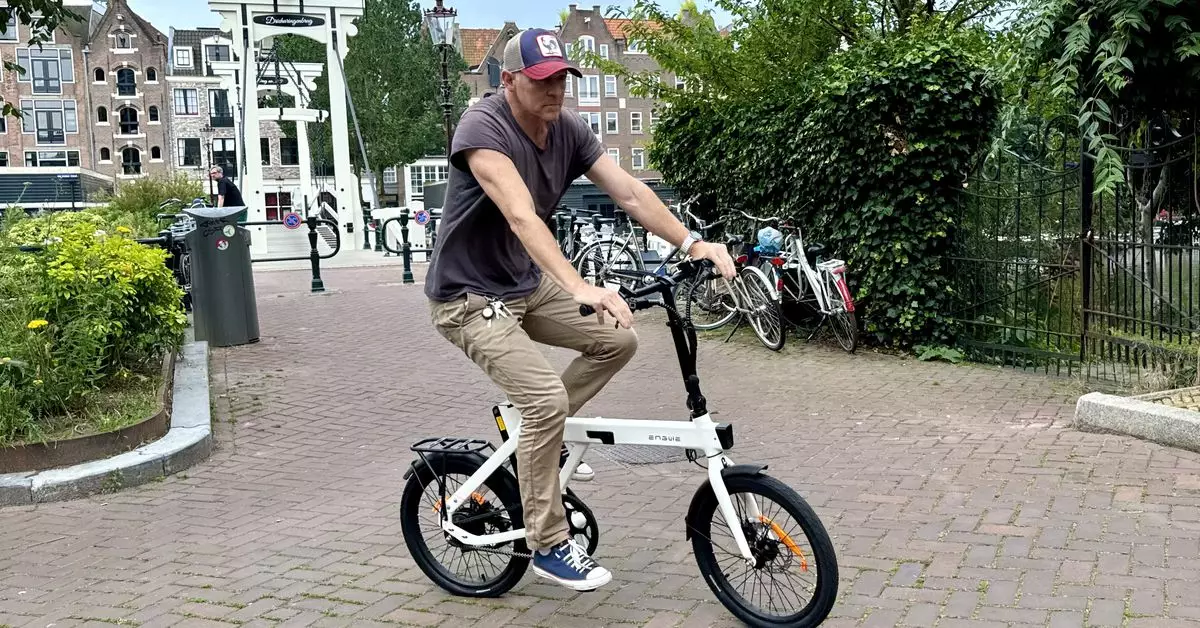The Engwe P20 electric bike may seem like a great deal on paper, boasting a price tag of around $1,190 and a promise of a 10-second folding time. However, after riding it for a month in Amsterdam, it becomes evident that the flaws are not to be overlooked. One major issue with the P20 is the noticeable delay in the pedal assist delivered by the torque sensor. Starting off from a standstill, especially on an incline, requires significant effort from the rider due to this delay. Moreover, the fact that the P20 is a single-speed bike means that there is no option to switch gears for some relief, compounding the issue further.
Another flaw that becomes apparent when riding the Engwe P20 is the limitation in speed. At around 23km/h (14mph), the legs of the rider start spinning so quickly that the saddle becomes uncomfortable. This speed limit may be acceptable for leisurely rides but can be frustrating if you need to reach the P20’s top speed of 25km/h (15.5mph) – as per European regulations. Unlocking the motor for higher speeds is possible, but even then, pedaling at US speeds of 20mph (32km/h) becomes impractical. The throttle lever, although disabled in the software, can also be unlocked, offering some reprieve, but it too has a noticeable delay in engagement.
Despite its shortcomings, the Engwe P20 does have some redeeming qualities. The hydraulic disc brakes of the P20 effectively bring the bike to a controlled stop, while the geometry of the bike ensures that the steering feels stable even on rough terrains. However, the P20’s weight is a concern, weighing in at 18.5kg (41 pounds) or 22kg (55 pounds) with the battery installed, making it less portable than one would desire from a folding bike. Additionally, heavy use of the throttle can significantly reduce the bike’s range, but when used in pedal-assist mode, the P20 offers a decent range of around 52km (32 miles) on a full charge.
The Engwe P20 comes with a range of extras, such as integrated fenders, a rear rack, a kickstand, and front and rear lights, making it a practical choice for city commuters. It also features a turn signal function, although its usability is limited due to the lack of sound and automatic turn-off. The bike is designed to withstand rain and water jets while riding, ensuring durability in various weather conditions. However, the absence of an app and the limitations of the turn signal feature highlight the lack of optimization in the overall riding experience.
The Engwe P20 electric bike, priced at around $1,190, is a suitable option for individuals seeking an affordable e-bike for their daily commutes or as part of a multi-modal transportation setup. Despite its flaws, such as the delay in the torque sensor and the speed limitation, the P20 offers decent functionality and extras that cater to the needs of urban commuters. While it may not be a top-of-the-line e-bike, the Engwe P20 strikes a balance between affordability and practicality, making it a viable choice for those looking for a budget-friendly electric bike option.


Leave a Reply